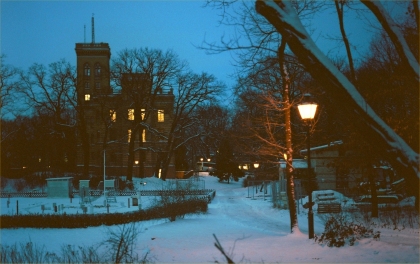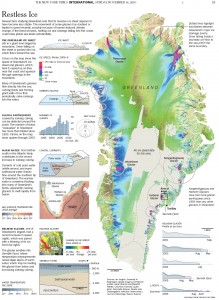This week, PNAS published our paper Increase of Extreme Events in a Warming World, which analyses how many new record events you expect to see in a time series with a trend. It does that with analytical solutions for linear trends and Monte Carlo simulations for nonlinear trends.
A key result is that the number of record-breaking events increases depending on the ratio of trend to variability. Large variability reduces the number of new records – which is why the satellite series of global mean temperature have fewer expected records than the surface data, despite showing practically the same global warming trend: they have more short-term variability.
Another application shown in our paper is to the series of July temperatures in Moscow. We conclude that the 2010 Moscow heat record is, with 80% probability, due to the long-term climatic warming trend. [Read more…] about The Moscow Warming Hole






 The new novel Solar by Ian McEwan, Britain’s “national author” (as many call him) tackles the issue of climate change. I should perhaps start my review with a disclosure: I’m a long-standing fan of McEwan and have read all of his novels, and I am also mentioned in the acknowledgements of Solar. I met McEwan in Potsdam and we had some correspondence while he wrote his novel. Our recent book
The new novel Solar by Ian McEwan, Britain’s “national author” (as many call him) tackles the issue of climate change. I should perhaps start my review with a disclosure: I’m a long-standing fan of McEwan and have read all of his novels, and I am also mentioned in the acknowledgements of Solar. I met McEwan in Potsdam and we had some correspondence while he wrote his novel. Our recent book